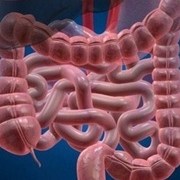 Hemera/Thinkstock
Hemera/Thinkstock
A healthy immune system is a thing of beauty. An unhealthy immune system on the other hand can open the door to a wide variety of ills.
Recent research has led to some encouraging results which may eventually make life easier for those who suffer from inflammatory bowel disease.
Research from the Centre for Physiopathology at Toulouse Purpan (CPTP Inserm / Université Toulouse III -- Paul Sabatier /CNRS) has produced beneficial bacteria (probiotics) that may protect against intestinal inflammation.
A human protein called Elafin is introduced into Lacotococcus lactis and Lactobacillus casei, two food-grade bacteria found in dairy products. These bacteria are found in foods such as cheese and yogurt.
Chronic inflammatory bowel diseases like ulcerative colitis and Crohn's disease can cause abdominal pain, diarrhea with or without bleeding, as well as abscesses and fissures of the anal area.
It is believed that flora of the intestines play a role in triggering these unpleasant symptoms.
Elafin, which has anti-inflammatory properties, is found in healthy human intestines. However in people who have IBD it disappears.
It is postulated that adding Elafin into the intestines may prevent some or all of IBD symptoms.
Experiments with mice have shown that human Elafin-producing bacteria reduced inflammatory symptoms in mouse intestines.
Administering Elafin to humans restores a healthier balance to intestinal mucus through decreasing inflammation and increasing the process of healing cells.
In the future use of Elafin may ease inflammatory symptoms in both acute and chronic situations.
Other research on the immune system and its involvement with leaky gut syndrome and intestinal inflammation has been showing some promising findings at Emory University School of Medicine.
Infections and stress can cause deterioration of the intestinal barrier. A healthy immune system actively controls bacteria and brings healing. But when an immune system is not healthy, irritable bowel disease can develop.
Research was performed on mice that lacked the protein sufficient junctional adhesion molecule A (JAM-A). This protein helps to control the intestine's epithelial barrier.
When there is a JAM-A deficiency, mice develop leaky gut, as bacteria and chemicals cross too easily from within the intestines into other areas of the body. Disease and inflammation is the result.
The lymph nodes and livers of mice who are deficient in JAM-A also contain greater amounts of bacteria. These mice are at greater risk for colitis, also called intestinal inflammation.
These findings concerning JAM-A may lead to significant breakthroughs in relieving symptoms for people with IBD.
This information was published online in the journal Immunity on Sept. 13, 2012.
Sources:
New Bacteria to Fight Against Intestinal Inflammation. Sciencedaily.com. Retrieved Dec. 16, 2012.
http://www.sciencedaily.com/releases/2012/11/121106125600.htm
Immune System Compensates for 'Leaky Gut' in Inflammatory Bowel Disease Susceptibility. Sciencedaily.com. Retrieved Dec. 16, 2012.
http://www.sciencedaily.com/releases/2012/09/120913123512.htm
Visit Jody's website and blog at http://www.ncubator.ca and http://ncubator.ca/blogger
Reviewed December 17, 2012
by Michele Blacksberg RN





Add a CommentComments
There are no comments yet. Be the first one and get the conversation started!